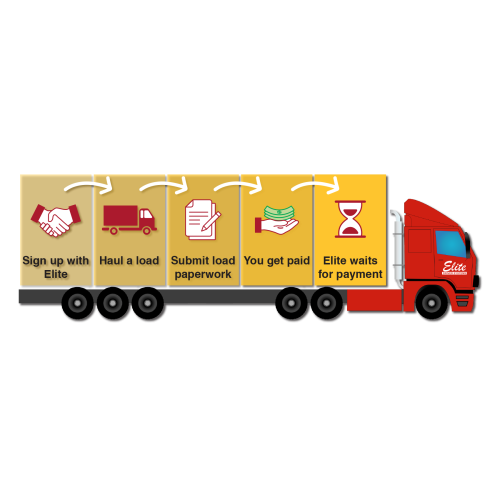HOW TO MANAGE FLEET EFFECTIVELY
A transportation dispatcher is a very difficult role. A dispatcher is constantly available for their drivers as the drivers are depend on the dispatcher to provide them with available loads at their preferred days, times and locations. The size of the fleet does not matter as it is constantly about utilizing drivers and dispatching and providing routing and even setting up documents and onboarding. No matter the number of drivers and trucks a dispatcher has to effectively manage their fleet they need to understand the responsibilities of how to run a successful operation. We will breakdown the key responsibilities of a truck dispatcher to help provide new tips and insights as to how they can manage their fleet even better.
Learn How To Evenly Distribute Loads Amongst the Fleet
As a dispatcher for a transportation service, it is critical to understand the significance of distributing loads amongst the fleet or drivers and available trucks. There is a tool many dispatchers swear by, OptimoRoute that can provide the tools to help optimize the routes and schedules for all booked deliveries and pickups.
Plan Routes Efficiently to Reduce Gas
To be certain that the drivers are able to manage as many loads as possible per day the dispatcher works to manage all of the available routes, loads and lanes to provide the ultimate route optimization by allowing the dispatcher to multi-task and tend to all of their drivers and loads quickly.
Reduce Driver Turnover and Plan Breaks for Your Driver
To lookout for the driver, it is important to plan their breaks, make sure that they are avoiding any potential issues and managing workloads.
Monitor and Track Drivers to Determine Route Times
To be the best dispatcher they must also track the locations and performance of drivers and vehicles. Using different kinds of technology like Geofencing, and live track and trace will provide assurance that there is easy access to information from the drivers.
Be Prepared for Last Minute Changes
In this industry, many issues can occur. Things such as being over-weight on a load and stopped by DAT or having mechanical issues with the truck. That is why it is important that every dispatcher is skilled in adapting with changes and thinking fast to find a new solution quickly.
Keep the Drivers Happy and the Freight Moving
Maintaining clear communication to keep drivers informed is a huge asset in the process. A good dispatcher wants to establish a good relationship with their drivers so they know how to handle certain situations. Always acting with empathy and strong communication skills can go a long way in regards to keep drivers happy and motivated. This helps to establish the expectation to always keep products moving and drivers moving.
Understand Your Fleet Management Challenges
It is an important asset to understand the set of circumstances that may have a negative affect on your fleet and how to proceed with being prepared in the worst of situations. One key piece of advice is to set the purchasing requirements as well as track everything. Understanding what the specifics to your purchasing requirements are will better help you to understand the entire process of what is needed throughout the process. Other challenges that may arise is vehicle maintenance, so it is important to be proactive and make the drivers schedule tire rotations as well as changing the oil and if possible, rotate the vehicles being used.
Optimize All Of Your Drivers Schedules
When dispatching with a team of drivers from all over the country it can be extremely beneficial to understand the schedules of all the drivers on your team. Once there is a certain level of organization that is achieved, then it will become easier to delegate dispatching different loads, trucks and drivers all over. Creating a system that allows one to check in with their team will help drivers by keeping them busy and you by knowing what is going on with all your loads and drivers.
Learn to Optimize Your Fleet and Usage
We want to make sure that the dispatcher is able to manage the level of loads and trucks that they have access to. Just because they may be successful at the time, it does not mean that it is a time to take out additional loans to purchase new trucks and or equipment. What a lot of people have noticed is that by being a dispatcher who does not have their own trucks, once you have a new driver, they are coming to you with the truck in hand already it makes the process a little easier as these drivers seek out this dispatcher due to just wanting someone who is able to provide loans so they don’t have to deal with the stress of locating their own freight to move.

 Toll Free: 1.888-337-3432
Toll Free: 1.888-337-3432 Email us: info@elitedriversystems.com
Email us: info@elitedriversystems.com







